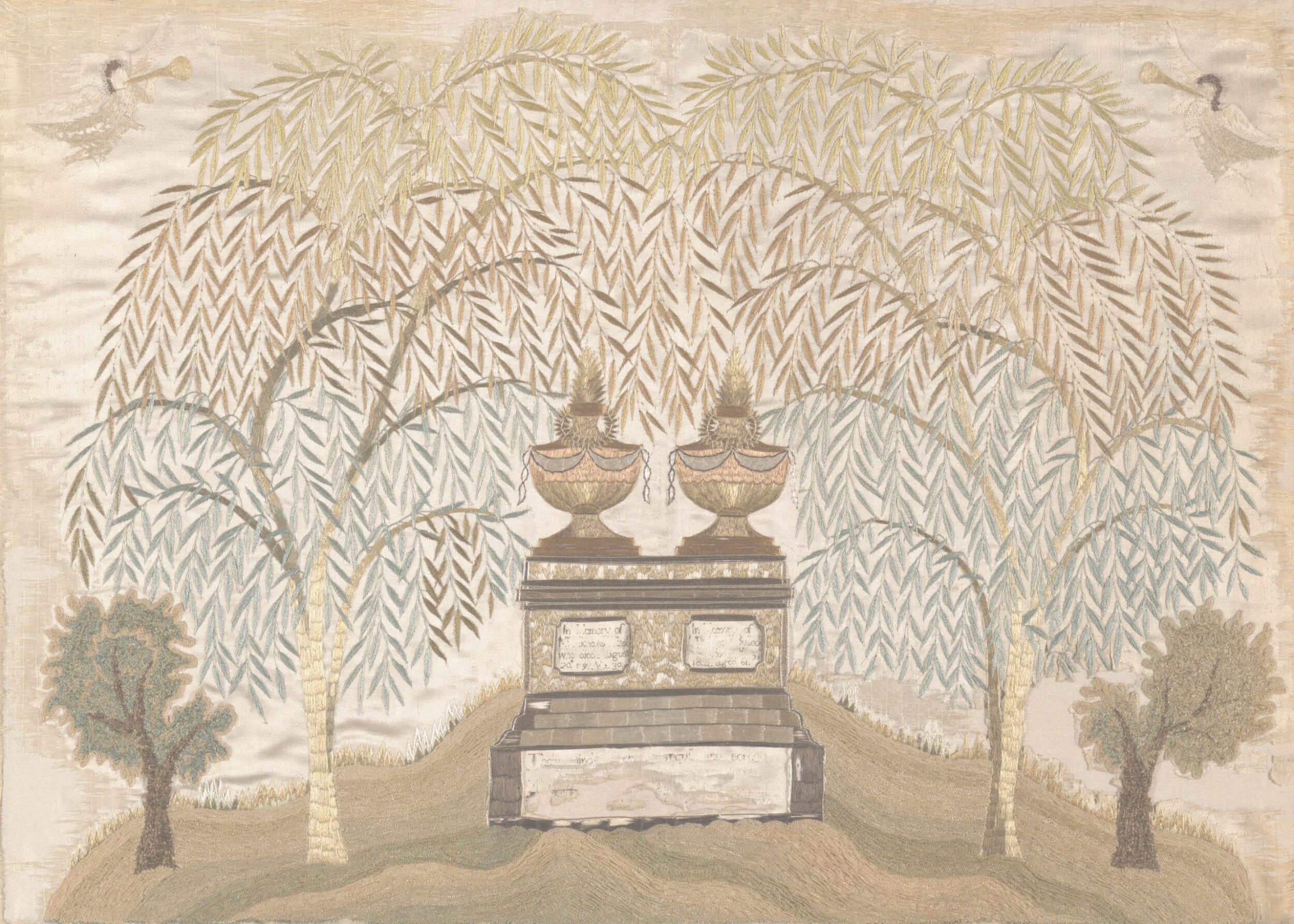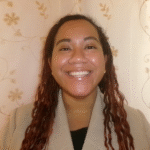My dad and I used to drive through Los Angeles’s Crenshaw neighborhood in his blue lowrider with Tupac preaching on the radio. He let me tag along to the barbershop, where I listened to him trade Socratic dialogue with the other men. Together we adopted a new pit bull puppy named Paws, whom he cradled tenderly in his arms. He said Paws was assumed to be aggressive—just like us—and thus in need of extra care.
My earliest memories of life were being loved by my father, Tyree L. Gilbert. But when I was thirteen years old, I realized that my dad was holding drugs as tightly as he used to hold me. His eyes reddened and became vacant; his once-muscular six-foot physique turned to bones. His endless supply of jokes dried up, and now he wore a haunted look on his face. The state caught on, removing me from his custody and placing me in foster care.
Eventually, I started to internalize my dad’s dying state as my own. It was a peculiar sensation, grieving myself in anticipation of death. I was overwhelmed because it seemed there weren’t enough planets in the universe to count all the ways Black life was endangered: medical racism, drug overdoses, incarceration, food insecurity, physical violence. There were days I was literally too scared to even leave my room or walk around outside without a friend for fear I would die. Twenty-four-seven hypervigilance was exhausting and draining.
When I encountered Black studies in college, it gave me the language to speak about my suffering and freed me from this state of being. (To professors Nyle Fort, Farah Jasmine Griffin, David Knight, Sarah Haley, and Jafari S. Allen, I thank you.) An undergraduate class at Columbia University called Black Mourning in America taught me a crucial lesson: I come from a community where death coexists with hope and life. From scholar Suzanne E. Smith, I learned that people fleeing slavery would sometimes march away in mock funeral processions. From scholar and activist Karla F. C. Holloway’s Passed On: African American Mourning Stories, A Memorial, I learned that, when all else was lost, there was hope in the afterlife: “Hallelujah! . . . Ain’t no three-room shacks in heaven. Ain’t no railroad tracks running through the front yard.” From writer Toni Morrison, I learned that the trauma of your past is a ghost that will haunt you until you confront it.
Together, my classmates and I made bridges between historical struggles and our daily lives. We discussed complex subjects—how abstract -isms, such as racism, can obscure real-life struggles, why the paternal perspective is often missing from the Black archive. We shared personal stories, held each other, and cried together. As per one professor’s advice, we studied like our lives depended on it. In a sense, they did.
As a child, I often wondered what made my dad start using drugs to cope. Was it the ink on his skin or the grease in his curly hair that made his life so hard? Was it the name-calling by my Mexican family, the way they called him “Tyrone” instead of “Tyree” because they couldn’t be bothered to get his name right? Was it the day I came home from school crying, and he found out his little girl was called a “n*****” on the playground? The fact that he could never make holiday dinners because he was always working the graveyard shift?
Was it all just too much? Mere speculation is my historical archive, because my dad is still not around for me to ask.
How do you even begin to quantify the pain of all the daughters who lost a version of their father and only have a photograph to remember him by? Black studies scholar Saidiya Hartman’s idea of the afterlife of slavery helps explain the large scope of endangered Black life: “This is the afterlife of slavery—skewed life chances, limited access to health and education, premature death, incarceration, and impoverishment.”
Although my dad was never formally educated, Hartman’s words would likely resonate with him today. Looking back, my dad was my first introduction to Black studies. When we lived together, he would take my siblings and me on long walks, sharing important lessons about Black life. He explained the importance of resilience, highlighted the underlying messages in Tupac’s music, and warned us to be wary of the police. At the time, his words went over my head. Now, I understand exactly what he was trying to impart.
More from our decarceral brainstorm
Inquest, finalist for the 2025 National Magazine Award for General Excellence, brings you insights from the people working to create a world without mass incarceration.
Sign up for our newsletter to get the latest in your inbox every Saturday.
Newsletter
My dad and I still text sometimes. A few years ago, we had this brief exchange at 3:31 in the morning. He wrote:
Sorry mommi I’m good. Bought phone today. I’ll b by tomorrow buy all u lunch. Your daddy love you tons on tons on tons. . . . I miss you. Pray for all u every day. Hope you get this.
Not wanting to miss the moment, I replied right away:
I really really love you and miss you don’t worry bout me I’m ok thx for being an amazing father ur doing good even right now cuz I know ur struggling a bit but that’s ok we all do and ur gonna be more than ok u just gotta pray for god to give u strength
Reading my dad’s comforting words and my encouraging reply teaches me that our lasting love is the strongest substance he will ever consume. It also serves as a bitter reminder: especially in the Black community, suffering cannot be overcome in isolation. Without my family, my father ultimately sank deeper and deeper into his struggles.
I only see my dad when I return home to Los Angeles during university breaks. I see him sporadically, throughout the city: on a street corner, in front of a grocery store, in an abandoned parking lot. He still finds ways to father me—offering me a can of soda, or what little he has—and to serve as my motivation. Once, when he was not in full presence of mind, he thought that I had graduated from law school already—a reflection of his unwavering faith in me, even in the worst of moments.
When it comes to my grief, summer is the cruelest season. My dad’s birthday falls on July 4—a day that used to feel magical because of the traditions he built for us. My dad would take my sisters and me out to eat barbecue during the day. At night, he’d buy us sugar cookies with sprinkles and lift each of us onto the roof of the car. Nothing but the best view of the fireworks was good enough for his little girls. I remember feeling that I could fly like my ancestors.
I’m distraught that I’ve been spending the past few July 4 on the ground. Other people plan barbecues and watch the fireworks. I hunger to celebrate, but how can I? Looking at my dad, enslaved to addiction, Frederick Douglass speaks to me: “What, to the American slave, is your Fourth of July?”
Even as I mourn my dad’s active presence in my life, I’ve found ways to choose life in the past few years. For a while now, I’ve channeled my grief into a freedom dream to pursue law on behalf of system-impacted people like my dad. He has already beaten the odds by staying alive, and I dream that one day, his quality of life will be better, and he will no longer suffer alone. Among all the rich lessons I’ve learned, Black studies has taught me this: when you live in proximity to death, you have nothing to lose but all the lives to gain.
Image: Mourning sampler made at Mary Balch’s School, Providence, Rhode Island, c. 1810. Silk embroidered with silk and silk chenille. The Art Institute of Chicago, Department of Textiles Collection. Public domain.

